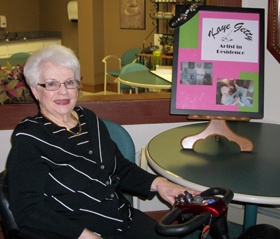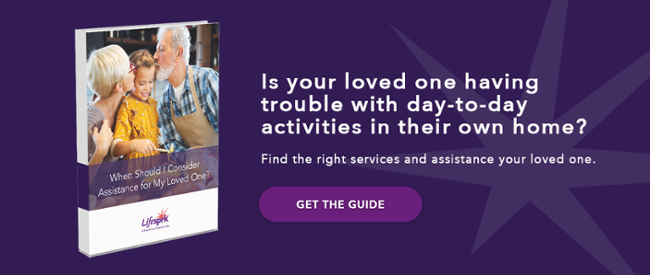You may not be familiar with the term ‘Inner Kill,’ but you’ve probably seen it. Many people, especially seniors, have Inner Kill but don’t recognize the symptoms or know what to do about it. In fact, it is estimated that Inner Kill is more prevalent than depression, which occurs in 1 in 10 people. Unlike depressive illnesses, which the National Institute of Mental Health describe as interfering with daily life and often stemming from brain disorders, Inner Kill is about the loss of purpose or motivation. Those with Inner Kill may be going through the motions of life, but lack direction or engagement. And it can be just as damaging to your wellbeing.
Inner Kill isn’t a new concept. Coined years ago by Richard Leider, Lifesprk Advisory board chair and founder of Inventure, the Purpose Company, Inner Kill is the art of dying without knowing it. Richard explains, “Similar to a garden in which nothing grows – it’s empty. Life lacks purpose, nothing moves us and continues day after day at the same pace. Helen Keller said, life is either a daring adventure or nothing. That nothing is Inner Kill.”
We’ve seen clients who lack purpose or passion but when reignited  outcomes and health improvements soar. That as Richard writes, is the power of purposeful aging. Kaye Getty was a painter. But through the years she experienced pain in her back and other health issues. What her Life Care Manager (nurse) realized though was that her pain was both physical and emotional and she began to withdraw. Inside Kaye was a woman who still desired to paint but had settled for the paintings that surrounded her as reminders of a life once filled with joy. Once her passion for painting was sparked again, Kaye felt different and more connected to what gave her purpose – leaving less time to focus on the pain and more on living her life. That changed everything for Kaye.
outcomes and health improvements soar. That as Richard writes, is the power of purposeful aging. Kaye Getty was a painter. But through the years she experienced pain in her back and other health issues. What her Life Care Manager (nurse) realized though was that her pain was both physical and emotional and she began to withdraw. Inside Kaye was a woman who still desired to paint but had settled for the paintings that surrounded her as reminders of a life once filled with joy. Once her passion for painting was sparked again, Kaye felt different and more connected to what gave her purpose – leaving less time to focus on the pain and more on living her life. That changed everything for Kaye.
As research published in the Archives of Internal Medicine shows, loneliness or a lack of purpose, is as important a risk factor for poor health outcomes, re-hospitalization and death as many medical risk factors for seniors. Yet few health care providers are asking about loneliness, and even fewer are prepared to address it. Once Kaye’s was addressed, her health and symptom management changed.
How can you help your aging parents or seniors you know? Keep their spark fresh by incorporating opportunities that give them reasons to get up in the morning. Help them add even just one purposeful activity into their daily routine and watch as their renewed sense of purpose gives them a reason to get up in the morning.
Call for a Free Consult
Share these tips to help them get started:
- Set specific goals and write them down. Write down the things you’ve enjoyed most over the years or new things you’d like to learn.
- Meet new people –join a book, knitting or bridge club. Play some cards. Find clubs or organizations who share similar interests.
- Learn new ways to connect like using Facebook or email to communicate with family and friends.
- Start something new – cooking club, walking group or alumni events.
- Incorporate something that sparks you into your daily routine. Take photos of birds, listing to Podcasts, walking a little further each day, joining a gym or yoga, etc.
These are just a few tips to get you thinking, we know there are many others. Need guidance or resources of other options in your community? Reach out to our Navigation Desk which is available 24/7 for resources and guidance: 952-345-0919. Or call for a free consult.
Spark On!



